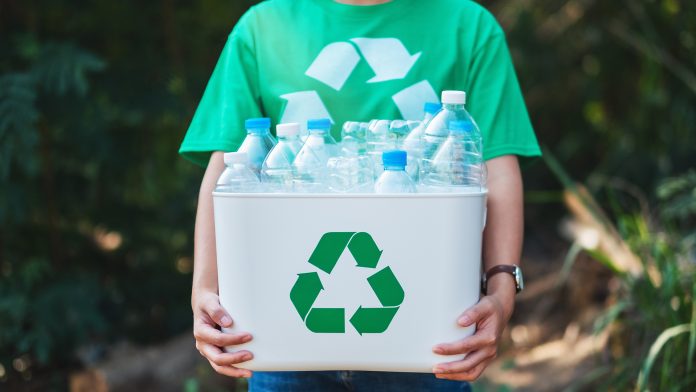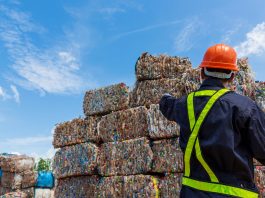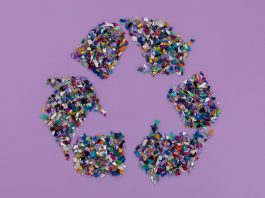Big oil and plastic producers have lied for over 30 years that plastic recycling is feasible, says a damning report from the Center for Climate Integrity (CCI).
In the report titled ‘The Fraud of Plastic Recycling: How Big Oil and the plastics industry deceived the public for decades and caused the plastic waste crisis,’ the CCI unveils a shocking revelation about plastic recycling.
The findings shed light on the intricate web of deception purportedly spun by fossil fuel and petrochemical companies regarding the recyclability of plastics, ultimately exacerbating the global plastic waste crisis.
Emphasising the significance of the findings, Alyssa Johl, CCI’s vice president of legal and general counsel, commented: “Big Oil and the plastics industry’s decades-long campaign to deceive the public about plastic recycling has likely violated laws designed to protect consumers and the public from corporate misconduct and pollution.
“Attorneys general and other officials should carefully consider the evidence that these companies defrauded the public and take appropriate action to hold them accountable.”
Plastic recycling challenges
Recycling plastic presents numerous challenges that make the process inherently difficult. Firstly, the sheer diversity of plastic types, each with unique chemical compositions and properties, complicates recycling efforts.
Furthermore, contamination poses a significant issue. Food residue, dirt, and other substances often cling to plastic items, reducing their quality and making them harder to recycle. Contaminated plastics may require extensive cleaning, which increases costs and energy consumption.
Additionally, plastic degradation presents a challenge. Through repeated use, exposure to sunlight, and other factors, plastic degrades, diminishing its quality and recyclability. This degradation can render plastic items unsuitable for recycling, limiting the potential for reuse.
Moreover, the lack of infrastructure exacerbates the difficulty of recycling plastic. Many regions lack adequate facilities and collection systems for plastic recycling, leading to low recycling rates and increased reliance on landfills and incineration.
Economic factors also play a role. Fluctuating prices of virgin plastic and limited demand for recycled plastic products can deter investment in recycling infrastructure and discourage participation in recycling programmes.
Now, evidence from the CCI suggests that plastic producers have lied about plastic recycling being a solution for decades, ultimately causing the plastic waste crisis we see today.
The plastics industry — including fossil fuel companies — knew decades ago their products couldn’t be recycled indefinitely (or at all). But they continued to pollute and deceive. It’s time to make them pay. pic.twitter.com/Kr4KvbD2jM
— Center for Climate Integrity (@climatecosts) February 18, 2024
Deceptive practices unveiled
The report amalgamates never-before-published internal industry sources with existing research to underscore a pattern of deliberate misinformation.
According to the CCI report, Petrochemical giants, including ExxonMobil, have long been privy to the insufficiency of plastic recycling.
Shockingly, as far back as the 1980s, industry insiders acknowledged that plastic recycling merely postpones disposal rather than offering a sustainable solution.
Key revelations from industry documents include statements such as, “Recycling cannot go on indefinitely and does not solve the solid waste problem,” and admissions like, “It is more likely that we will wake up and realise that we are not going to recycle our way out of the solid waste issue.”
These confessions starkly contrast with the industry’s outward promotion of recycling as a remedy for plastic waste.
False commitment to combatting plastic waste
Despite purported commitments to recycling initiatives, internal discussions within the American Plastics Council (APC) revealed a stark reality.
Allegedly, an Exxon employee admitted in 1994: “We are committed to the activities, but not committed to the results,” highlighting the industry’s potentially disingenuous approach to tackling the plastic waste crisis.

Evidence further indicates a deliberate effort to manipulate the market in favour of virgin plastic. Notes from an APC staffer in 1995 revealed concerns over recycled plastic’s inability to compete with virgin material.
The report claims a deliberate suppression of plastic recycling efforts to safeguard the interests of petrochemical giants.
Call for accountability
CCI President Richard Wiles emphasised the necessity of holding these companies accountable: “This evidence shows that many of the same fossil fuel companies that knew and lied for decades about how their products cause climate change have also known and lied to the public about plastic recycling.
“The oil industry’s lies are at the heart of the two most catastrophic pollution crises in human history.
“When corporations and trade groups know that their products pose grave risks to society and then lie to the public and policymakers about it, they must be held accountable. Accountability means stopping the lying, telling the truth, and paying for the damage they’ve caused.”





